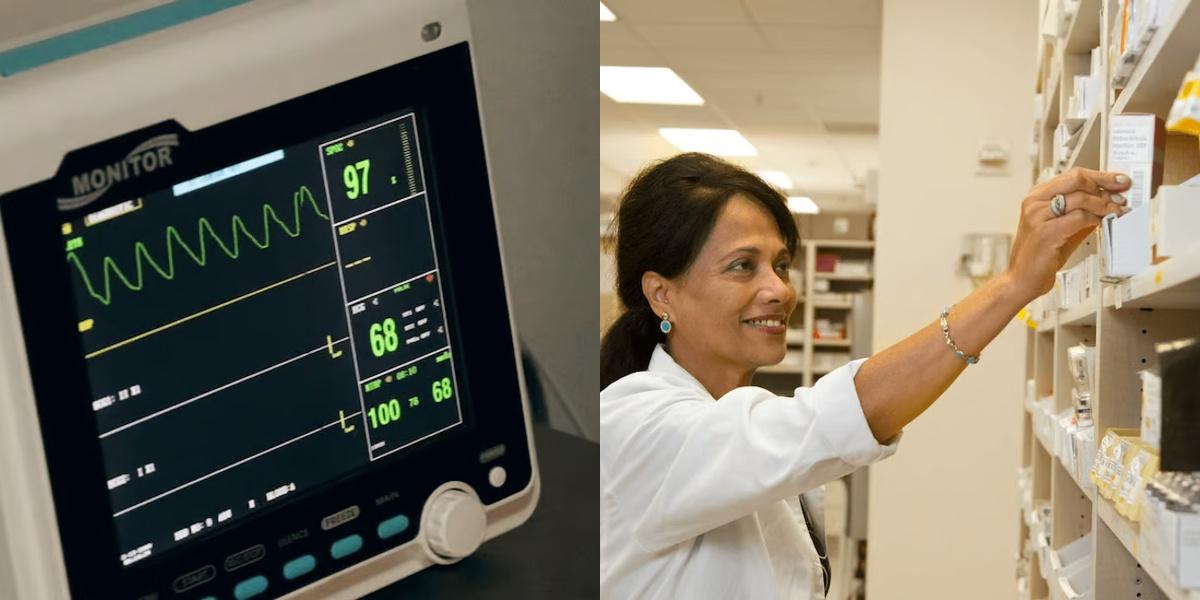EKG vs Pharmacy Technician

Trying to choose between becoming an EKG technician and a pharmacy technician? Both roles let you enter healthcare quickly, yet daily tasks, earnings, and work settings differ. Use this guide to see which path fits your goals—and learn how to start training right away.
Key takeaways
- EKG programs can finish in 4 – 12 weeks.
- Pharmacy-tech programs run 8 weeks – 6 months.
- Median pay: EKG tech ≈ $67,000 / year; pharmacy tech ≈ $43,000 / year.
- Both careers are growing as the U.S. population ages.
Salary Snapshot
- EKG technician median: about $67,000 per year; experienced techs can earn more in busy cardiac units.
- Pharmacy technician median: about $43,000 per year; pay rises in hospitals or specialty pharmacies.
Job Outlook
- EKG tech demand: growing faster than average thanks to increased cardiac testing.
- Pharmacy tech demand: thousands of new openings every year as prescription volume climbs.
Work Environment Quick View
EKG Tech
- Clinical setting, mostly weekday shifts.
- Short, focused patient interactions.
- Moderate physical effort.
Pharmacy Tech
- Retail or hospital pharmacy; evenings and weekends common in retail.
- Fast-paced customer service, on your feet most of the shift.
- Accuracy and multitasking are critical.
Which Career Fits You?
Choose EKG if you want:
- A specialized diagnostic skill.
- A calmer clinical atmosphere.
- Higher starting pay.
Choose pharmacy tech if you want:
- Frequent customer interaction.
- Job openings in almost every town.
- Deeper knowledge of medications and insurance processes.
Next Steps
- Compare programs on Dreambound to see schedules, tuition, and formats.
- Read detailed guides for nationwide requirements:
- Enroll early. Seats fill fast.
- Book your certification exam right after training to keep momentum.
Ready to start? Find your program on Dreambound today and be working in healthcare within months.

Alyssa Jane is part of the customer success team at Dreambound. She works with students, training providers, and employers, helping them have a smooth customer journey. She is also an ESL tutor and Licensed Psychometrician. She is fond of traveling, photography, and discovering new restaurants.





